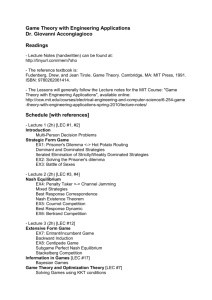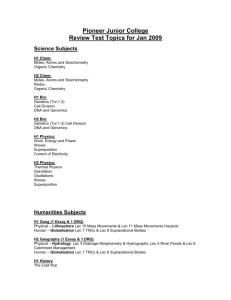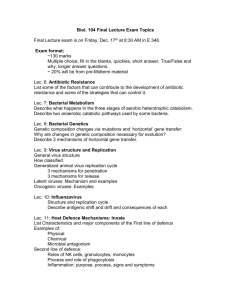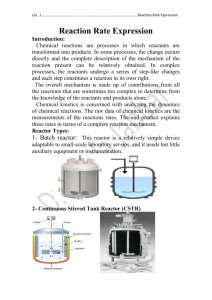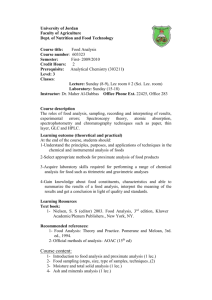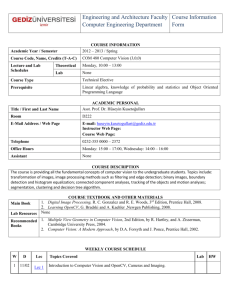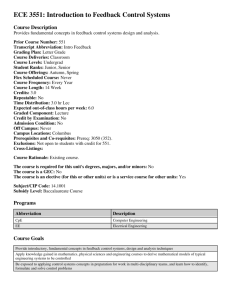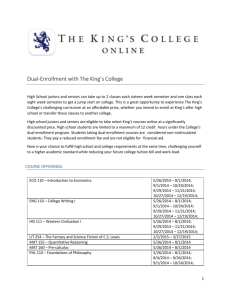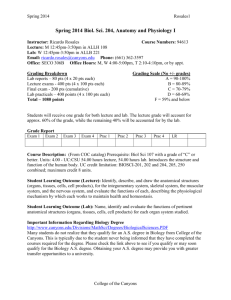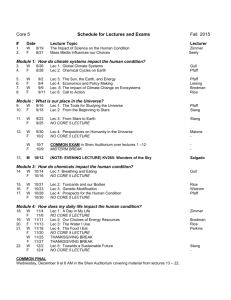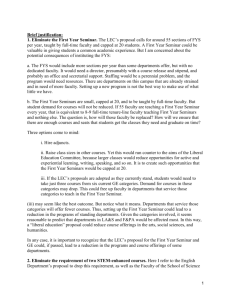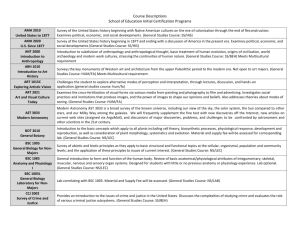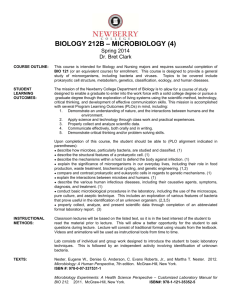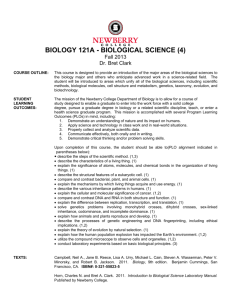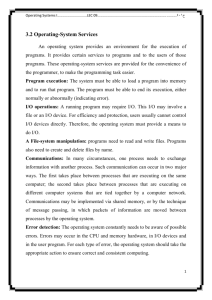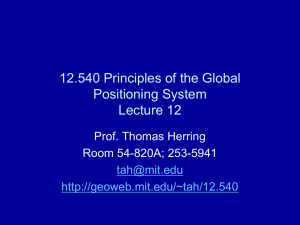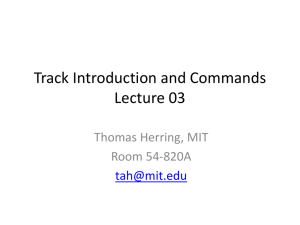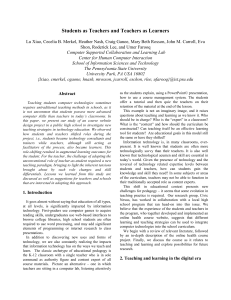Example of a UCLA Engineering program curriculum
advertisement
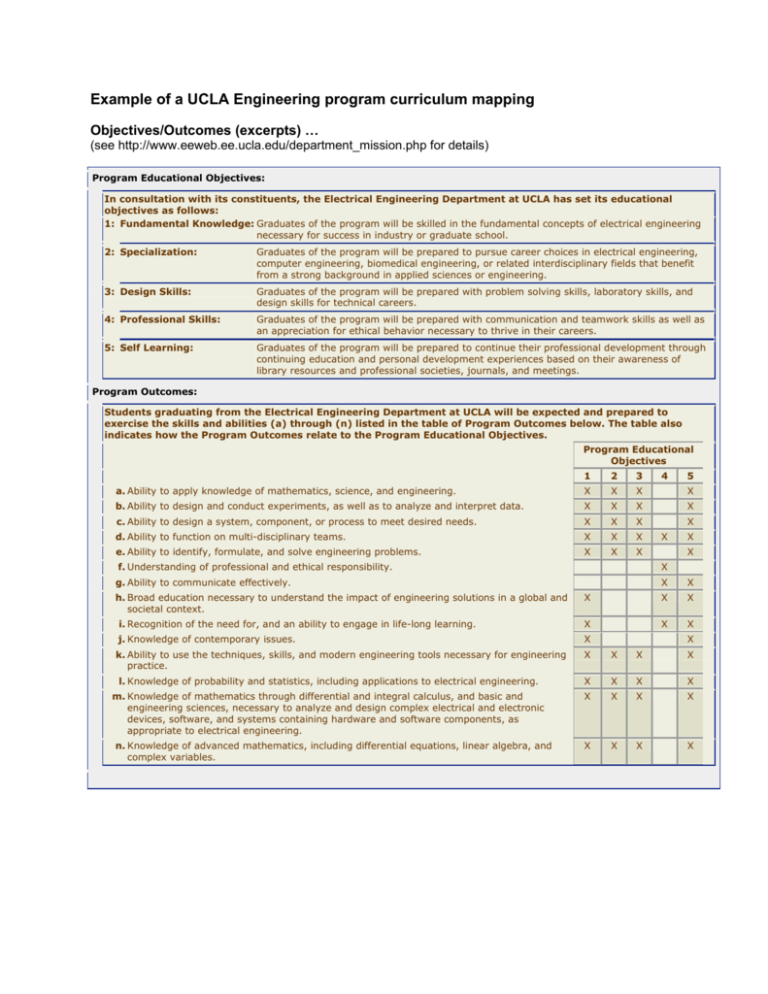
Example of a UCLA Engineering program curriculum mapping Objectives/Outcomes (excerpts) … (see http://www.eeweb.ee.ucla.edu/department_mission.php for details) Program Educational Objectives: In consultation with its constituents, the Electrical Engineering Department at UCLA has set its educational objectives as follows: 1: Fundamental Knowledge: Graduates of the program will be skilled in the fundamental concepts of electrical engineering necessary for success in industry or graduate school. 2: Specialization: Graduates of the program will be prepared to pursue career choices in electrical engineering, computer engineering, biomedical engineering, or related interdisciplinary fields that benefit from a strong background in applied sciences or engineering. 3: Design Skills: Graduates of the program will be prepared with problem solving skills, laboratory skills, and design skills for technical careers. 4: Professional Skills: Graduates of the program will be prepared with communication and teamwork skills as well as an appreciation for ethical behavior necessary to thrive in their careers. 5: Self Learning: Graduates of the program will be prepared to continue their professional development through continuing education and personal development experiences based on their awareness of library resources and professional societies, journals, and meetings. Program Outcomes: Students graduating from the Electrical Engineering Department at UCLA will be expected and prepared to exercise the skills and abilities (a) through (n) listed in the table of Program Outcomes below. The table also indicates how the Program Outcomes relate to the Program Educational Objectives. Program Educational Objectives 1 2 3 a. Ability to apply knowledge of mathematics, science, and engineering. X X X X b. Ability to design and conduct experiments, as well as to analyze and interpret data. X X X X c. Ability to design a system, component, or process to meet desired needs. X X X d. Ability to function on multi-disciplinary teams. X X X e. Ability to identify, formulate, and solve engineering problems. X X X f. Understanding of professional and ethical responsibility. 5 X X X X X g. Ability to communicate effectively. h. Broad education necessary to understand the impact of engineering solutions in a global and societal context. 4 X X X X X X X i. Recognition of the need for, and an ability to engage in life-long learning. X j. Knowledge of contemporary issues. X k. Ability to use the techniques, skills, and modern engineering tools necessary for engineering practice. X X X X l. Knowledge of probability and statistics, including applications to electrical engineering. X X X X m. Knowledge of mathematics through differential and integral calculus, and basic and engineering sciences, necessary to analyze and design complex electrical and electronic devices, software, and systems containing hardware and software components, as appropriate to electrical engineering. X X X X X X X X n. Knowledge of advanced mathematics, including differential equations, linear algebra, and complex variables. X Curriculum mapping (excerpts) continued … (see http://www.eeweb.ee.ucla.edu/course_contribution.php for details) Contribution of Courses to Program Outcomes: Program Outcomes Type Units Course Number & Title a LEC 4 CHEM20A Chemical Structure LEC 4 CHEM20B Chemical Energetics and Change LAB 3 CHEM20L General Chemistry Laboratory LEC 4 EE1 Electrical Engineering Physics I LEC 4 EE2 Physics for Electrical Engineers LEC 4 EE10 Circuit Analysis I LEC 4 EEM16 Logic Design of Digital Systems LEC 4 EE100 Electrical and Electronic Circuits LEC 4 EE101 Engineering Electromagnetics LEC 4 EE102 Systems and Signals LEC 4 EE103 Applied Numerical Computing b c d e f g h i j 63 26 34 12 18 9 10 8 8 9 k l m n 14 4 12 9 ETC. Number of courses contributing strongly to each program outcome Legend: LEC - Lecture course - Strong contribution LAB - Laboratory course - Average contribution DES - Design course - Some contribution OTH - Other - No contribution
